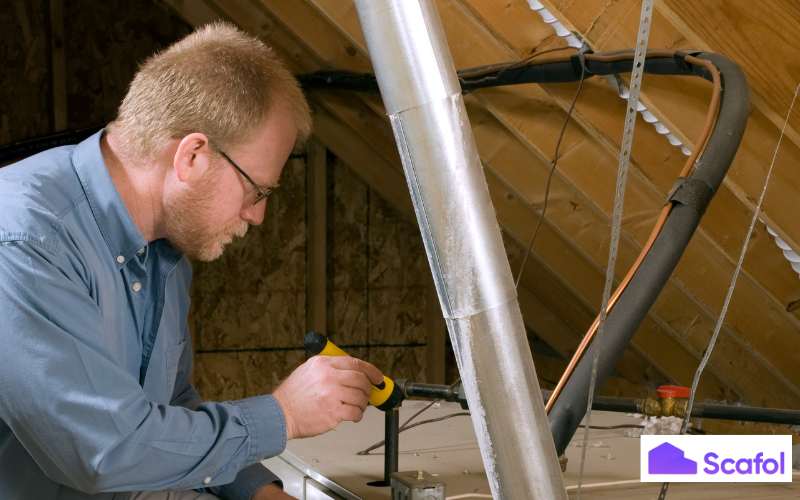
As a surveyor in the residential sector, you will no doubt frequently encounter discussions about qualifications and competency. While they are often used interchangeably, they represent distinct concepts that are crucial for your professional success and the quality of the services you provide to clients. Understanding the difference between qualifications and competency can help you navigate your career, enhance your skillset, and ensure that your surveys stand up to the scrutiny of clients, regulatory bodies, and your peers.
What Are Qualifications?
Qualifications are the formal credentials that demonstrate your educational background, training, and adherence to industry standards. For surveyors, qualifications are often the first step in building a career. They show that you have completed a structured course of study or training in areas such as surveying, construction, or property management.
Common Qualifications in the Field of Residential Surveys
- RICS (Royal Institution of Chartered Surveyors) Membership: One of the most respected qualifications in the industry, signifying that you meet rigorous professional standards.
- Degree or Diploma in Surveying: An academic qualification demonstrating that you have a theoretical understanding of the principles behind surveying and property evaluation.
- Specialised Courses or Certifications: Qualifications that focus on specific areas such as building defects, damp analysis, or energy efficiency.
These qualifications provide a strong foundation for your career and are often necessary for building trust with clients, as they confirm that you have received the right training and have met industry standards. They may also be legally required in some areas to perform specific types of surveys.
Why Qualifications Matter
- Credibility and Trust: Qualifications signal to clients and employers that you possess the foundational knowledge required to perform your job competently.
- Compliance with Industry Standards: Many qualifications ensure that you are up to date with the latest regulations, building codes, and industry best practices.
- Access to Career Opportunities: Holding a qualification from a recognised body can help open doors to new roles, higher pay, or specialisations.
What Is Competency?
While qualifications are about what you know, competency is about how effectively you can apply that knowledge in real-world situations. In the context of residential home surveys, competency refers to your ability to conduct surveys that are thorough, accurate, and relevant to the needs of your clients.
Competency Is Demonstrated Through
- Practical Experience: It’s one thing to have the knowledge from a course or qualification, but it’s another to apply that knowledge in the field. Experience allows you to refine your judgment and decision-making skills.
- Critical Thinking: Competency goes beyond simply following a checklist. It’s about being able to assess a property from different angles, spotting potential issues that may not be immediately obvious, and interpreting results in a way that offers clear guidance to your clients.
- Problem-Solving: A competent surveyor can identify issues during a survey, figure out how to address them, and provide recommendations that are not only practical but also in line with the client’s best interests.
- Adaptability and Continuous Learning: The property market, construction techniques, and building materials evolve over time. A competent surveyor remains informed of these changes and adjusts their practices accordingly.
Why Competency Matters
- Quality and Accuracy: Clients rely on you for accurate and detailed surveys. Competency ensures that you can deliver results that meet or exceed expectations.
- Client Satisfaction: When you’re competent in your role, you are better able to communicate with clients, manage expectations, and offer valuable recommendations.
- Adaptation to Change: Competency allows you to stay current with industry trends, technology, and regulatory changes, ensuring you remain an expert in the field.
Qualifications and Competency: A Balance
As a surveyor, it’s important to understand that both qualifications and competency are crucial to your career, but they serve different purposes. Qualifications get you in the door and ensure you have the foundational knowledge necessary to perform your role. However, competency is what will set you apart as an expert who can apply that knowledge effectively in real-world scenarios. You can think of it this way: qualifications represent what you know, while competency is about how you apply it. The ideal surveyor possesses both: a solid set of qualifications and the real-world competency to make those qualifications count. This balance allows you to provide valuable insights to your clients, maintain high standards in your work, and continue to grow as a professional.
Building Both Qualifications and Competency
- Continual Education: Stay updated on industry changes through courses, webinars, and professional development opportunities.
- Mentorship and Peer Learning: Surround yourself with experienced surveyors to learn from their practical experience and gain insight into the nuanced challenges of residential surveys.
- Hands-On Practice: Competency comes with time and experience. The more surveys you conduct, the more you will develop the critical thinking and problem-solving skills necessary to become a truly competent surveyor.
- Seek Feedback: Regularly seek feedback from clients, colleagues, and supervisors to identify areas where you can improve both your qualifications and your competencies.
Conclusion
In the field of residential home surveys, qualifications and competency work hand-in-hand. Qualifications provide you with the necessary knowledge and credibility, while competency ensures that you can apply that knowledge effectively in practice. By continuing to develop both aspects, you can enhance the quality of your surveys, build client trust, and stay ahead in an ever-evolving industry. Whether you are just starting out or are a seasoned professional, striving for a balance of qualifications and competency will ensure your ongoing success as a surveyor.

















 Book a Demo
Book a Demo